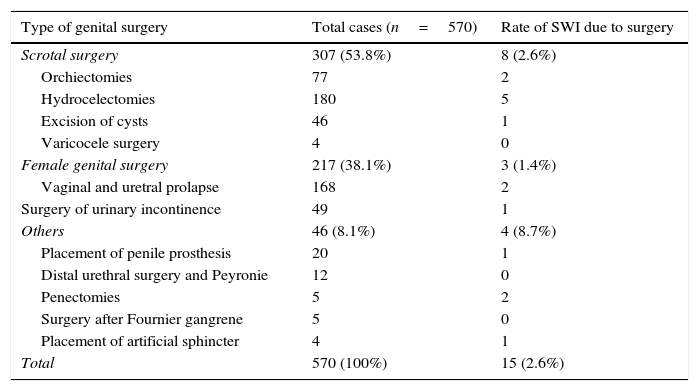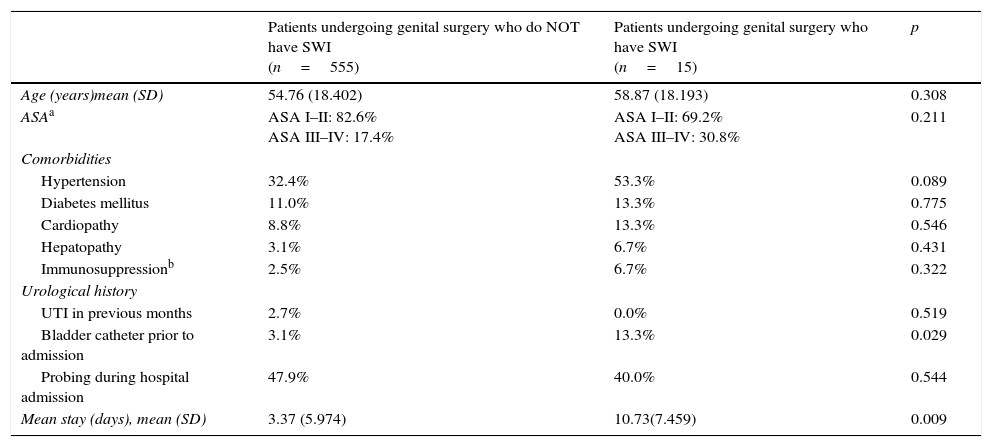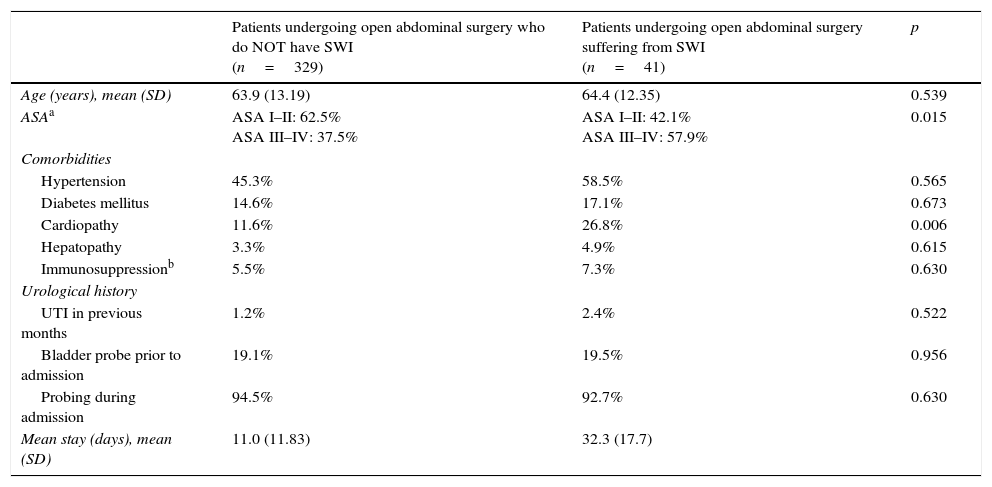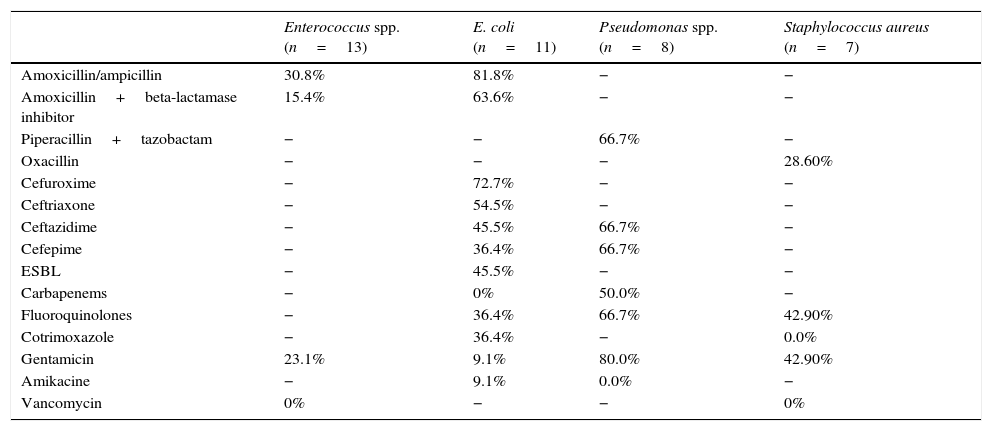Open surgery continues to have a fundamental role in urology, and one of its main complications is surgical wound infection. Our objective was to analyze surgical wound infection in patients who underwent surgery in our Department of Urology and to assess the risk factors, microorganisms and resistances by type of surgery.
Material and methodsThis was a prospective observational study that included 940 patients: 370 abdominal/open lumbar surgeries and 570 genitoperineal surgeries. We analyzed age, sex, comorbidities, stay and type of surgery, as well as the causal microorganisms and antibiotic resistances.
ResultsFor genitoperineal surgery, we found 15 cases (2.6%) of surgical wound infection associated with previous urinary catheterisation. Most of the isolated microorganisms corresponded to enterobacteriaceae, highlighting the resistance to beta-lactam.
In abdominal/lumbar surgery, we found 41 cases (11.1%) of surgical wound infection. The incidence rate was 3.3% in prostate surgery; 9.8% in renal surgery; and 45.0% in cystectomy. Heart disease was associated with a higher incidence rate of surgical wound infection. The most common microorganisms were Enterococcus spp. (27.1%), E. coli (22.9%) and Staphylococcus aureus (14.6%). Enterococcus was resistant to ampicillin in 37.5%, and Extended-Spectrum Betalactamase-producing E. coli were isolated in 41.7%.
ConclusionsWe found a low incidence rate of surgical wound infection in genitoperineal surgery, compared with renal surgery and cystectomy. The presence of heart disease and carrying a previous urinary catheter are factors associated with surgical wound infection. Enterococcus and E. coli are the most common pathogens, with high rates of resistance.
La cirugía abierta sigue teniendo un papel fundamental en urología, y la infección de la herida quirúrgica es una de sus principales complicaciones. Nuestro objetivo fue analizar la infección de la herida quirúrgica en pacientes intervenidos por nuestro servicio de urología y valorar factores de riesgo, microorganismos y resistencias por tipo de cirugía.
Material y métodosEstudio prospectivo y observacional. Incluyó 940 pacientes: 370 cirugías abdominal/lumbar abierta y 570 genitoperineales. Analizamos edad, sexo, comorbilidades, estancia y tipo de cirugía, así como microorganismos causantes y resistencias a antibióticos.
ResultadosEn cirugía genitoperineal hallamos 15 casos (2,6%) de infección de la herida quirúrgica, asociándose a cateterismo urinario previo. La mayoría de los microorganismos aislados corresponden a enterobacterias, destacando las resistencias a betalactámicos.
En cirugía abdominal/lumbar encontramos 41 casos (11,1%) de infección de la herida quirúrgica. La incidencia fue del 3,3% en cirugía prostática, del 9,8% en cirugía renal y del 45,0% en cistectomía. Padecer cardiopatía se asoció a mayor incidencia de infección de la herida quirúrgica. Los microorganismos más frecuentes fueron Enterococcus spp. (27,1%), E. coli (22,9%) y Staphylococcus aureus (14,6%). Enterococcus es resistente a ampicilina en el 37,5% y E. coli productor de betalactamasas, en el 41,7%.
ConclusionesEncontramos escasa incidencia de infección de la herida quirúrgica en cirugía genitoperineal, comparada con la renal y cistectomía. La presencia de cardiopatía y portar catéter urinario previo son factores asociados a infección de la herida quirúrgica. Enterococcus y E. coli son los patógenos más frecuentes, con altas tasas de resistencia.












